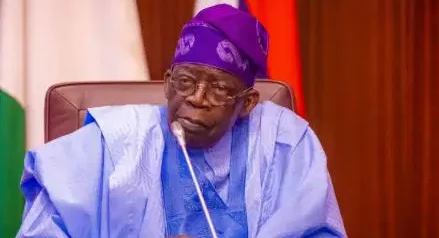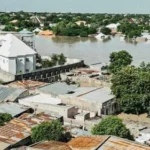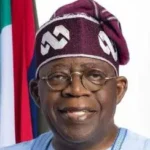ABUJA – NORTHERN elders under the auspices of Northern Elders Forum, NEF, Wednesday, declared and told the Tinubu-led administration that it is unacceptable to exclude Northern Nigeria from infrastructural development.
In a statement tagged ‘Northern Nigeria’s Exclusion from Critical Road and Rail Infrastructure Funding: A National Failure Demanding Immediate Redress’ and signed by the Spokesperson, NEF, Prof Abubakar Jika Jiddere, described the Federal Government’s recently approved allocation of funds for some road projects in the country as “lopsidedness in the allocation of funds to the disadvantage of the North.”
Jiddere accused the federal government of the recent pattern of capital investment, which reveals a troubling regional imbalance that heavily favours Southern Nigeria, while ignoring the urgent infrastructure needs of the North.
He said: “The Federal Government of Nigeria (FGN) has recently approved the allocation of funds for some road projects in the country. The Northern Elders Forum (NEF) has observed with dismay the lopsidedness in the allocation of funds to the disadvantage of the North generally and the North East in particular.
“This amounts to the systematic exclusion of Northern Nigeria in the allocation of federal infrastructure funding, particularly in road and railway development and the NEF is gravely concerned about it.
“The recent pattern of capital investment reveals a troubling regional imbalance that heavily favours Southern Nigeria, while ignoring the urgent infrastructure needs of the North, especially the North East, which remains the most fragile and underserved part of the country.
“While the government points to projects such as the Abuja–Kano Expressway (₦252 billion) and the Wusasa–Jos Road (₦18 billion) in the North Central and North West as evidence of inclusion, these are insufficient and largely tokenistic when compared to the massive allocations directed to Southern States.
“The following are just a few examples of the regional disparity in current federal infrastructure allocations: Lagos–Calabar Coastal Highway – ₦1.344 trillion
“Delta State section of Lagos–Calabar Coastal Highway – ₦470.9 billion; Second Niger Bridge (completion) – ₦148 billion; Lagos–Ibadan Expressway (Phase 2) – ₦195 billion; Lokoja–Benin Road – ₦305 billion; Third Mainland Bridge (Lagos – structural evaluation) – ₦3.571 billion; Ado–Ikere–Igede Road (South West) – ₦5.4 billion; Onitsha–Owerri Expressway – ₦22 billion; Abuja–Kano Expressway (North) – ₦252 billion; and Wusasa–Jos Road (North) – ₦18 billion
“It is important to note that some of these projects, like the Lokoja–Benin Road, often listed as a Northern project, merely passes through Lokoja, which is being utilized as a logistical corridor to the South.
“This shows how the North’s geography is exploited to facilitate Southern trade and transport, with no corresponding developmental investments in the Northern region itself.
“Meanwhile, the North East, devastated by terrorism and chronic underdevelopment, is entirely excluded from these high-value federal road projects. Critically deteriorated highways that demand immediate attention include: Jalingo–Numan–Yola–Bama; Bauchi–Gombe Road; Gombe–Maiduguri through Biu, Gombi, Mubi, Madagali; and Gwoza Damaturu–Gashua–Gaidam–Damasak–Gubio. The major high-way linking Nasarawa-Benue Taraba – Adamawa, and Borno State.
“In North Central and North West, essential roads such as Birnin Gwari–Ilorin, Minna–Bida, Kaduna–Jos via Saminaka, and Kaduna–Minna via Sarkin Pawa continue to deteriorate after decades of federal neglect.”
Railway Infrastructure: A collapsed system in the North
The NEF also asserted that the federal government has side-lined the North from railway infrastructure, “Equally disturbing is the deteriorating state of Nigeria’s railway infrastructure, particularly in the Northern region.
“Most notably, the eastern rail line extending to Maiduguri (North East) a route linking Port Harcourt–Enugu– Makurdi–Lafia–Jos–Bauchi–Gombe– Maiduguri, has remained inactive for over a decade, with operations effectively halted for 10 -15 years. This line once served as a vital economic artery for cargo and passenger movement across the Northern corridor.
“While the Federal Government has recently initiated or completed modern rail projects predominantly in the South, such as the Lagos–Ibadan standard gauge, the Warri–Itakpe line, and plans for the Lagos–Calabar Coastal Rail, there has been no corresponding rehabilitation or modernization of the Northern rail lines despite their vast geographic and economic importance.
“This stark disparity in railway development raises urgent questions: Why has the Nigerian Railway Corporation (NRC) allowed the Northern rail network to deteriorate to a state of near-total collapse?
“Why are recent railway expansions concentrated almost entirely in the South, with little or no inclusion of the long-neglected Northern lines?
“When will the critical Port Harcourt–Maiduguri Eastern Rail Line be restored and upgraded to serve the millions of citizens and industries across the North East and North Central?
“It is incumbent upon the NRC and the Ministry of Transportation to provide a clear and transparent explanation for this neglect, and to present a comprehensive plan for rail rehabilitation and expansion that includes the Northern rail corridors as a national priority.
NEF Demands:
“Immediate inclusion of North East Road and railway infrastructure in the national development portfolio.
“A public explanation from both the Federal Ministry of Works and the Nigerian Railway Corporation (NRC) regarding the gross disparities in regional infrastructure allocations.
“A binding commitment from Northern lawmakers, governors, and ministers to reject any federal budget or policy framework that does not ensure balanced and inclusive infrastructure development.”
In conclusion, NEF said, “This is a defining moment for Nigeria’s leadership. The choice is clear: equity or exclusion, unity or fracture. If Nigeria is to endure as one nation, no region, especially not the North, can be treated as expendable.”


